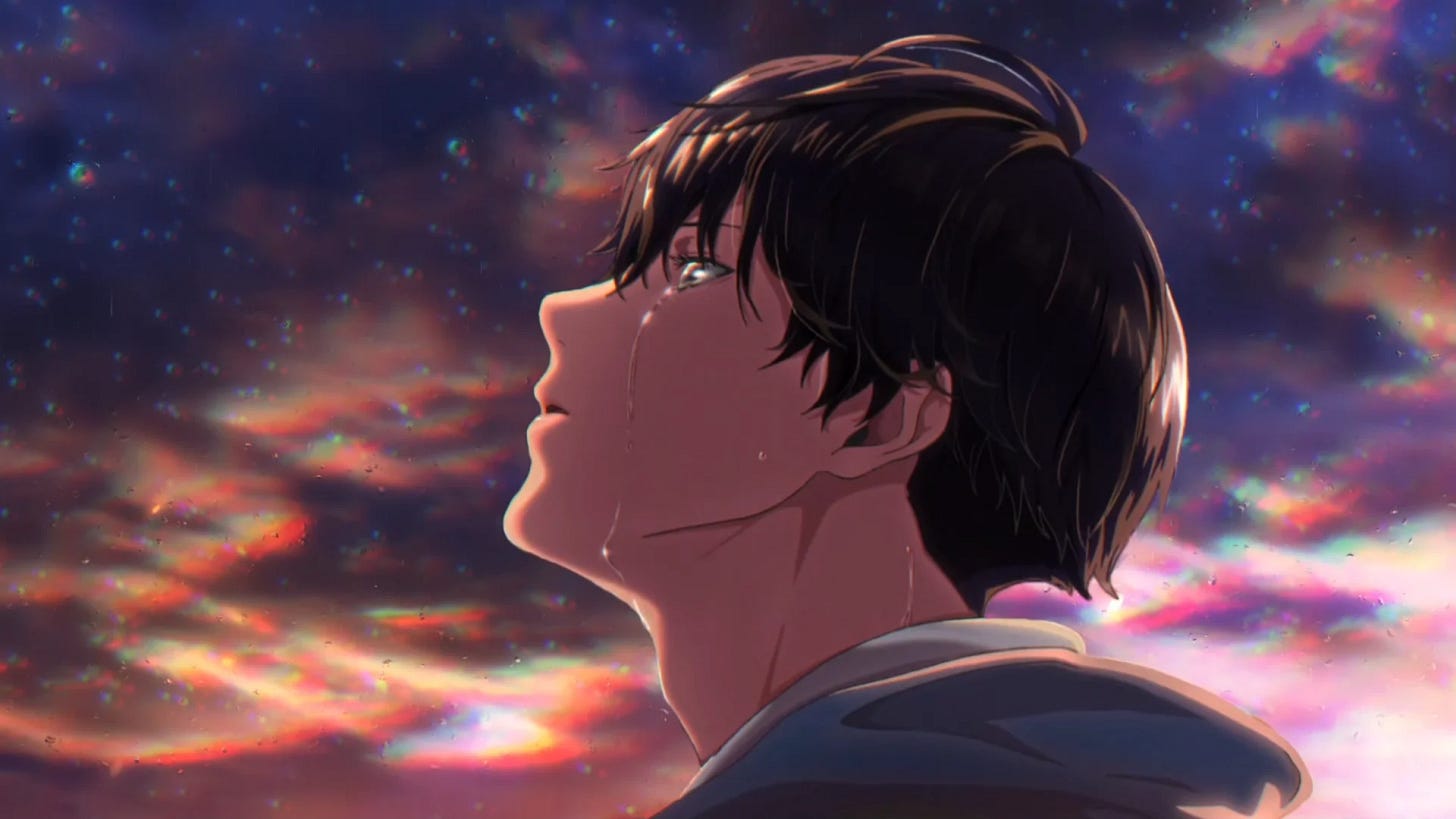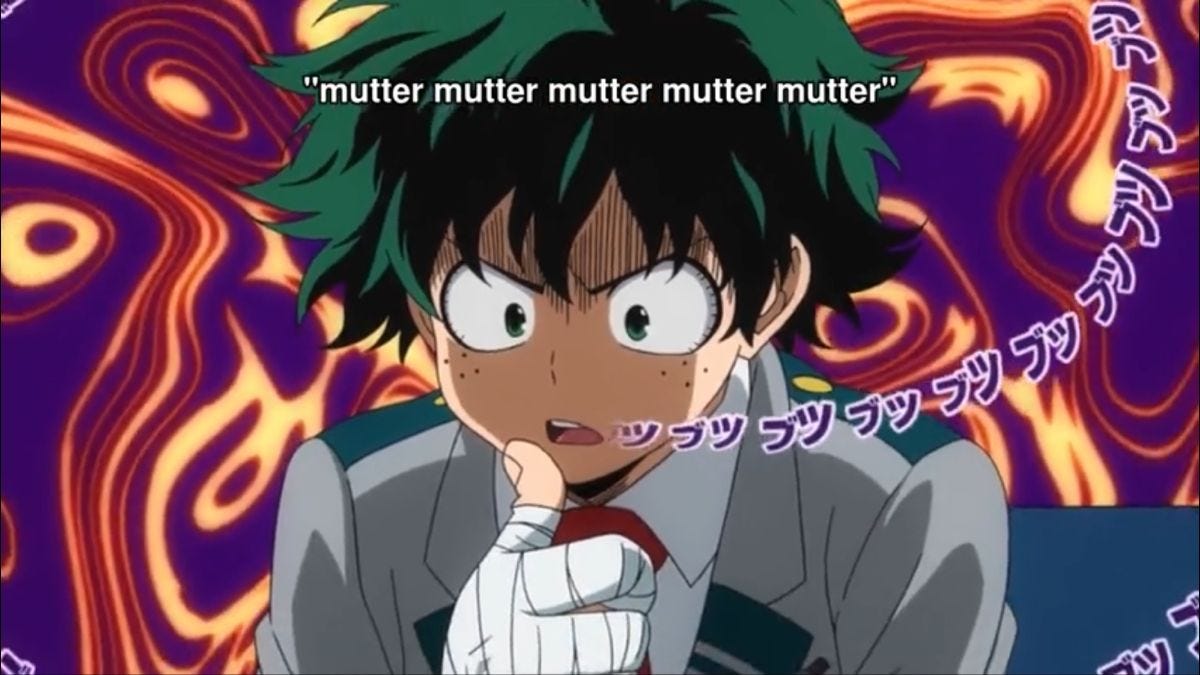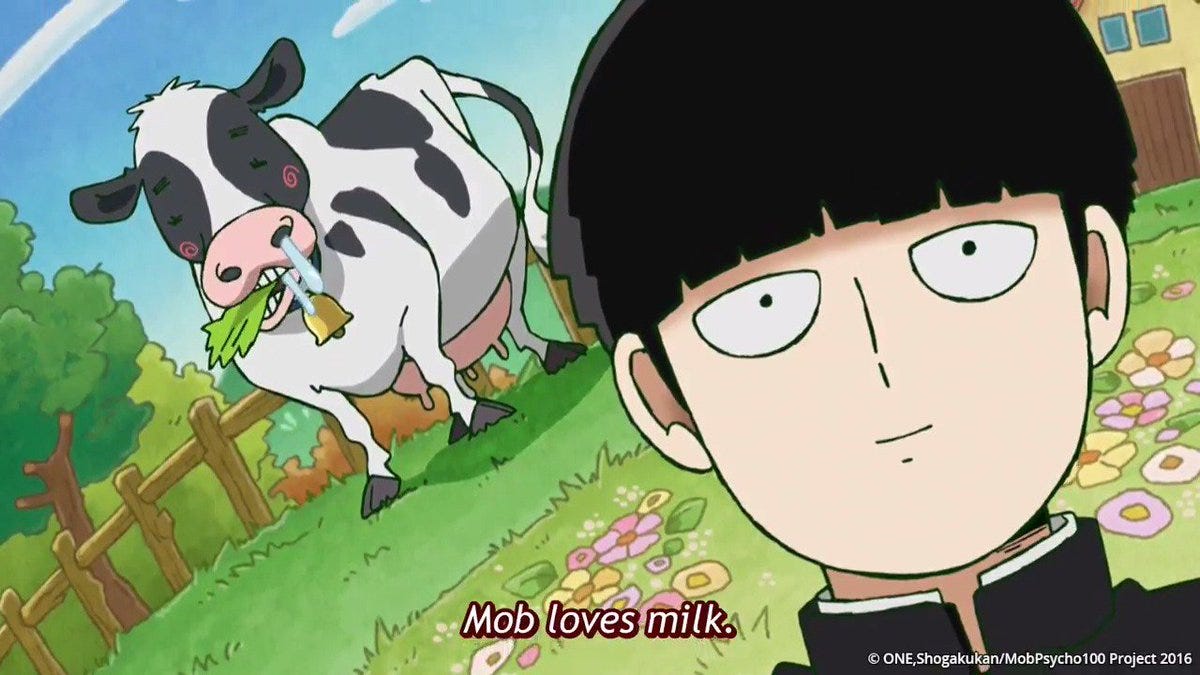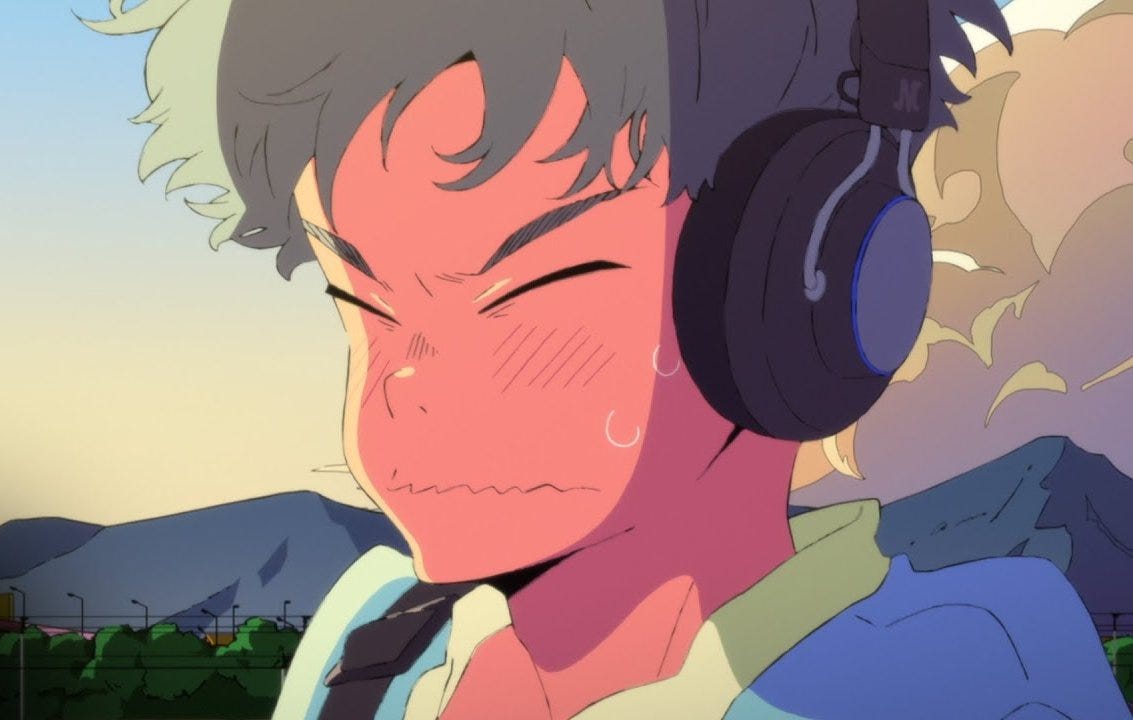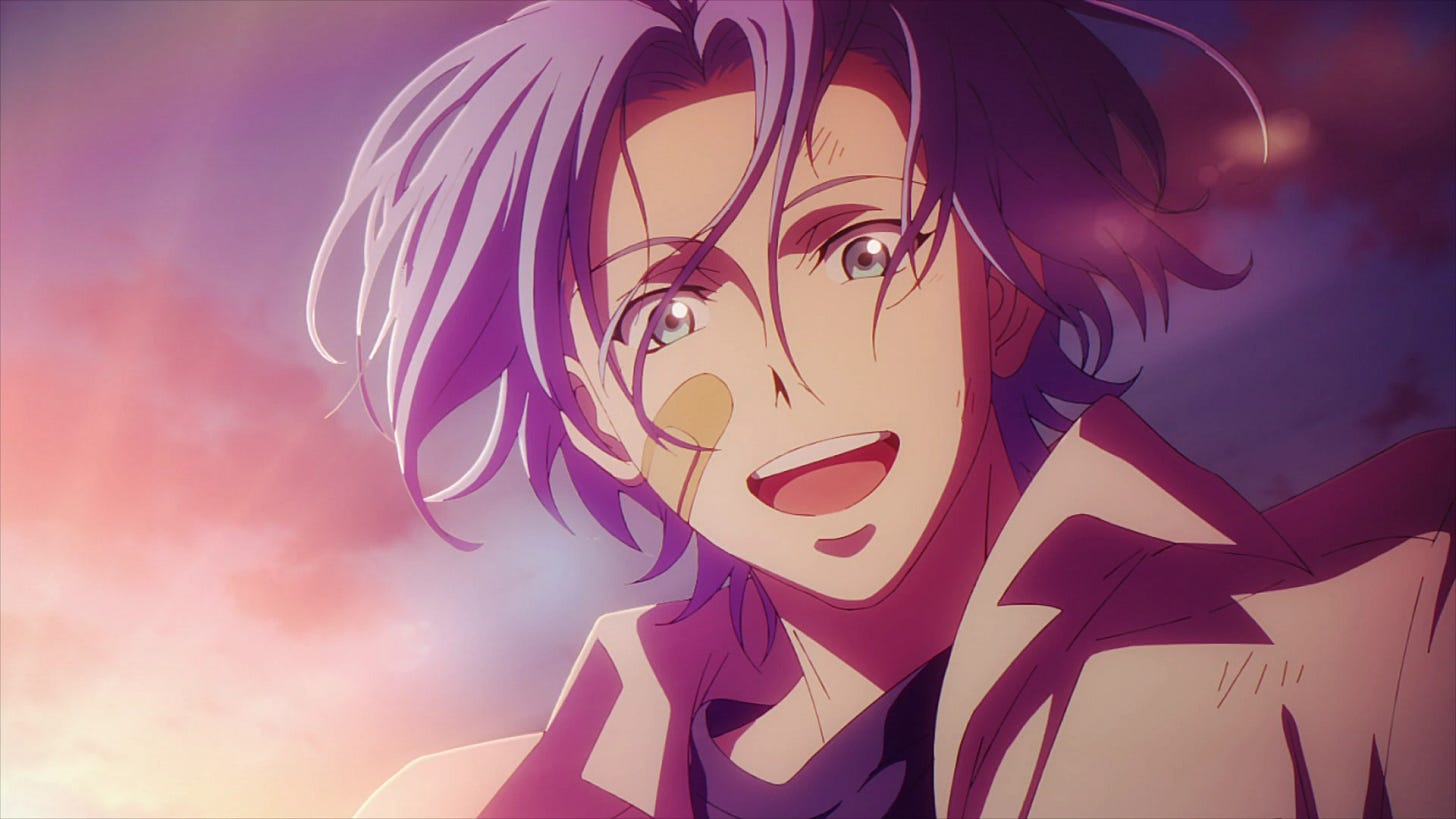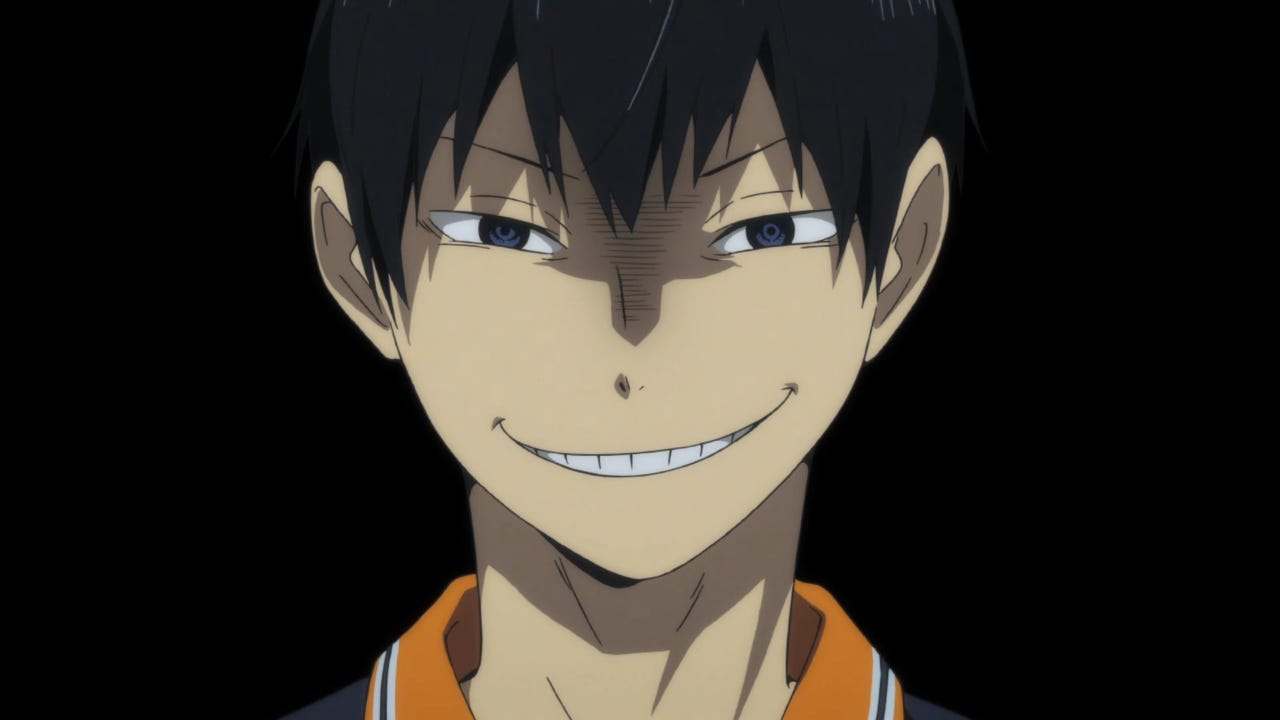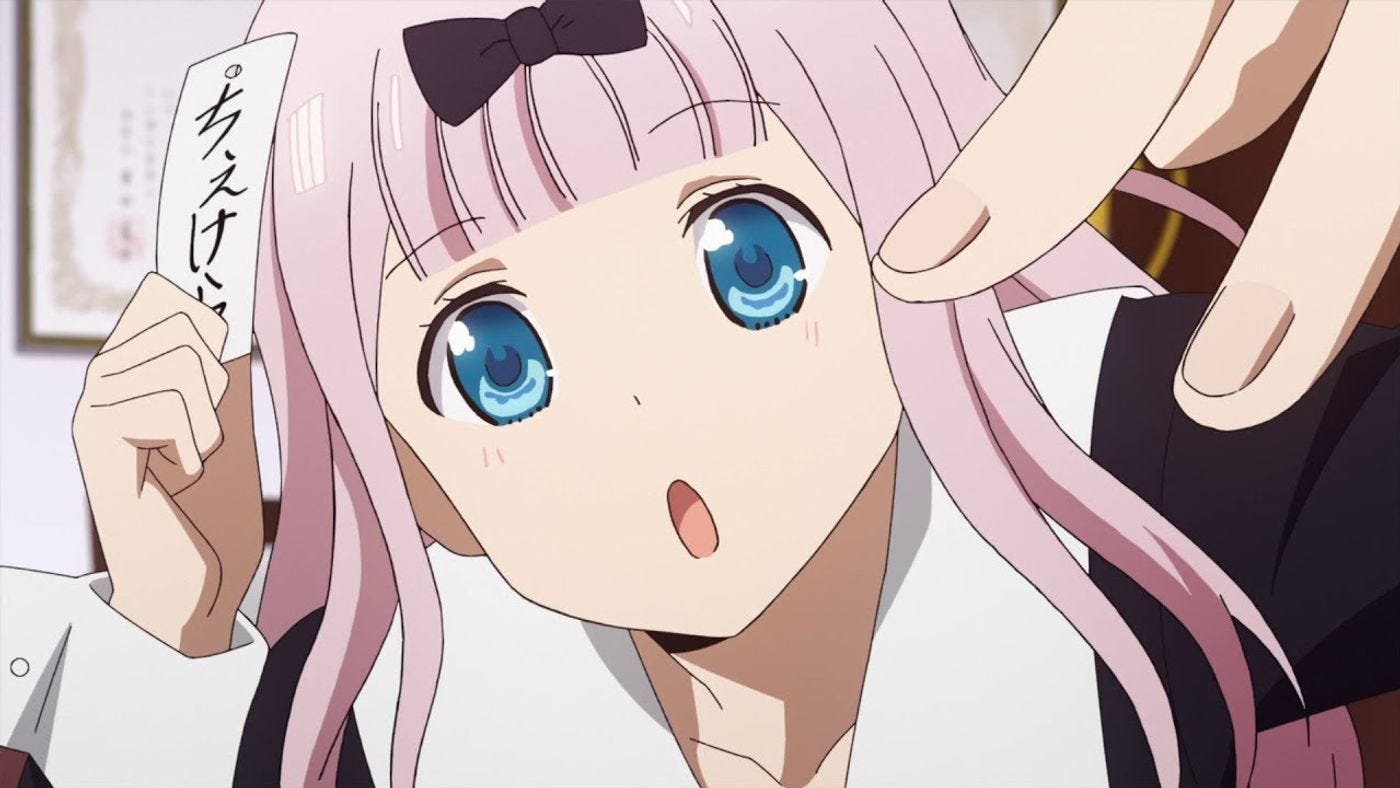Anime On The Spectrum.
A short analysis of autism in anime and manga, is it good, bad, or canon?
This post might contain spoilers of Bubble, Boku No Hero Academia, Mob Psycho 100, Given, Words Bubble Up Like Soda Pop, SK8 the Infinity and Haikyuu.
After watching the 2022 movie Bubble, which I highly recommend, I couldn’t stop thinking about the main character. Was he autistic? Was it confirmed?
In the movie, Hibiki is the main character, he has to wear noise cancelling headphones because he is too sensitive to noise, this is shown in the film, it is also shown he ends up in a facility similar to a school for special needs kids (god, what an awful term).
So, does this confirm it? Did everyone else see this and think the same? This made me think of other characters I’ve seen in the past year in anime shows, Izuku Midoriya, Mafuyu Satou, Cherry, and many more, who I thought were all autistic. So, I’ve decided to go in-depth and give my opinion on this. Is there good representation of autism in anime? Is it better than the actual autistic characters in other television shows? And when can I say it is canon?
Before I start, I want to add that I am not an expert in the psychology of characters, I am simply a person who is autistic that enjoys anime and manga; someone that wants to see himself in the characters he is watching.
Powers and autism:
I think the most famous demography in anime is shonen, we have Naruto, Boku no Hero Academia, Shingeki no Kyojin, Jujutsu Kaisen, and the most recent hit, Chainsaw Man. I will focus on two shows from this demographic, Boku no Hero Academia and Mob Psycho 100. These are not the only shows I think characters show autistic traits, but they are two of my favourite shows.
Izuku Midoriya, also known as Deku, is the protagonist of the superhero hit anime. His character is awkward and obsessive, he writes everything related to the heroes on the show in the notebook, he murmurs when he is thinking and is an overly emotional character, people love him, but some people hate him. All of the traits I mentioned are common traits in autistic people, which I also can relate to, these traits are often seen as weird in both anime and in real life. Deku is annoying, he is useless, people say, but he is THE main character.
We see the journey of Izuku from a bullied kid to one of the strongest students throughout the seasons, it is a great development! He is the main character, after all. What I like about him is that even after being strong and popular, he keeps these autistic traits, his awkwardness, his empathy, and his special interests. He doesn’t grow out of them because they are not a burden, but a part of who he is. It is good to see the main character whose traits don’t make him stronger or a burden, they just exist.
But not only that, the show has more characters that can be seen as autistic. All of them are different to one another. Boku no Hero Academia was the reintroduction of anime to me, seeing all these characters who were autistic and refreshing, it was fun! I had fun with all these characters. It was simple, but a good representation. I think it is great for the target demographic, I hope autistic kids can see themselves as heroes, we deserve to be the main character and save the day sometimes.
Mob Psycho 100 is another shonen about a kid with powers. This one tells us the story of Shigeo Kageyama, also known as Mob, a kid who is an esper and possesses psychic powers and the ability to see and talk to ghosts. The special thing about this show is that the story has a countdown, when the situation escalates to 100, Mob’s powers will explode and cause a lot of trouble.
What does this have to do with autism, you may ask? The answer is simple, Mob and his powers are an allegory to the autism experience! His powers are something he can’t control at times, especially when everything is out of his control. This resonated with me, Mob’s powers feel like a meltdown, a moment when everything is too much and you just explode.
This isn’t something I only felt, a lot of autistic anime fans have expressed that they can see Mob as an autistic character and that they relate to his explosion or the character in general.
Even if the show was never intended to be about the autistic struggle to control our emotions, Mob has given comfort to a group of people. He represents the bad and the good experiences we have to live, he is a mirror for us to see ourselves in. Sometimes, we need to see our worst to feel like we are being heard, this is the case of Mob Psycho 100’s autistic representation.
Romance and autism:
I’ve watched many shows with autistic characters where they are unlovable robots, in a metaphorical and literal sense, but when will they be a good romantic lead? In a Netflix show centred around autistic people dating or in an anime about a queer band? The answer will surprise you!
The anime Given, inspired by the manga of Kizu Katsuki, tells the story of Mafuyu, a boy who is trying to learn to play the guitar, and Uenoyama, a musical genius who is teaching him. This LGBT romance story is definitely one of my favourites, but not only because of the cute romance between the two guitarists, because of the beautiful and personal autistic representation.
Mafuyu’s side of the story is about his struggle to communicate his emotions. This comes from severe trauma after his boyfriend’s death and is also a clear sign of autism. The story is about a boy who is struggling to communicate and how a boy who loves him is learning to understand his soon to be lover.
Mafuyu can’t express his emotions, he doesn’t often talk or show facial expressions, but he is still a boy full of struggles and emotions. The way Mafuyu opens up or talks regularly is different from everyone else, which makes him stand out and look out of place at times.
The situation with Given is complex when it comes to pointing out if Mafuyu is autistic or not, some people see it and understand it, some people prefer to blame his autistic traits in other situations that happen in the story. There will be times when not everyone can see that a character is autistic, since it might not be obvious or said explicitly.
In my personal opinion, Given is more an anime about communication rather than romance. The main focus of the story is learning to express emotions and to understand what the other has to say. The story can be interpreted as the story of an autistic boy and his struggles with communication.
This whole post was inspired by Bubble, there is another anime movie Netflix released I would like to talk about, that film being Words Bubble Up Like Soda Pop. This is a romance movie that follows two kids, Cherry and Smile, and their summer adventure in taking care of elderly people and finding an old record.
Cherry, a shy boy who dislikes talking in public and gets red when nervous, is always carrying something with him, a dictionary and his headphones. He likes writing haikus, that’s why he has his dictionary, his headphones are said to help him cancel the noise. Yes, Netflix did release two movies with a protagonist with noise cancelling headphones.
Having headphones that cancel headphones doesn’t automatically make you autistic, Cherry has other traits that make him autistic. He has a special interest on haikus. Cherry also dislike loud noises, that’s why he wears those headphones and has trouble expressing himself, he uses haikus to help him with that.
The movie is about accepting your flaws, the character Smile accept that her smile is beautiful after being insecure of her teeth. What does Cherry accept? Cherry instead grows to be a little less insecure when sharing his haikus. Their story ends with Cherry reciting a poem for her and Smile giving him a wild smile. Cherry doesn’t need to change anything that makes him different, just be more confident in his skills.
Talent and autism:
Talent is a topic often touched in anime and manga, what makes us talented? Can hard work beat talent? SK8 the Infinity and Haikyuu are two series that focus on this topic, talented characters vs hardworking characters. Those two series also have something in common, autistic characters.
If you want to see the most ridiculously fun sport anime, I recommend SK8 the Infinity, a sports anime centred around two skateboarding boys, Langa and Reki, and their antics as they try to get Langa to be a better skateboarder.
The topic of talent comes with Langa, he is new to skateboarding but somehow he is getting better too fast, way too fast. This can be due to his years of training for snowboarding or because of his obsessive interest in the new sport that almost gets him killed.
Langa is too into things, he hyperfocuses on skateboarding and wants to keep doing it even in dangerous situations. Langa’s ability to focus on things can be related to him being autistic. He also shows more traits, like not understanding people’s emotions and having a hard time changing his facial expressions.
Haikyuu has the hard work vs talent dilemma, but is it really talent? This dilemma is shown between the rivaly of Oikawa, a boy who trains hards to be the best, and Kageyama, the king of the court, a volleyball genius.
Kageyama, like Langa, is a boy who is deeply interested in volleyball, to the point he can only memorise things if they are related to the sport. Kageyama is said to be a genius, he is so good at this game it is almost scary. At the end of the day, Kageyama is just a boy with a lot of passion.
The interest Kageyama (and Hinata) have for volleyball is almost obsessive and long-lasting. Kageyama has been in love with this sport since he was little, never growing out of it. Kageyama just has a special interest he works hard for. This passion and happiness he gets from this sport is what keeps him going.
Special interests are not the only trait Kageyama shows, he doesn’t understand his teammates, he is too serious and has a hard time taking things lightly. His traits are things he works on, that motivates him, or just make him a fun character. Kageyama is the main focus of this show with Hinata, he might not be the only character that shows autistic traits, but he is one of the most obvious and the main character.
So, how does the dilemma end, talent or hard work? I recommend you watch these shows to figure it out. (Blue Period might help you out to answer it as well)
Bring on the fandom terms:
Canon and headcanon, two words that are used to describe if something is actually stated in the source material or just made up/speculations by fans. Are these characters “canon” autistic? The answer is complex. Yes, no and maybe.
I can’t go and ask the creators of the characters if they purposely made their characters autistic, but some of these characters have too many obvious traits to be considered a coincidence. Going back to Bubble, Hibiki is specifically written to have these headphones made for noise cancellation, Izuku is constantly seen stimming, Mafuyu has said himself he doesn’t feel like others. Was this meant to be? I am not sure.
Making something not explicit doesn’t make it any less real. It would be better to hear from the creator or the character themself that they are autistict, but sometimes actions mean more than words. This is a show-don’t-tell situation. This is not only seen in autism, it is also common with queerness characters and different gender identities.
Some of these characters are clearly meant to be autistic, some of these characters are autistic people projecting into them, which is not a bad thing at all. Sometimes the representation we have is not as good as the one we feel is accurate. People adding into what is written is nothing new and will never stop. Having these characters might be comforting or just fun.
Is it good or bad?:
That depends! As someone who is used to seeing aliens or robots as the character that is obviously written to be autistic, I think it is quite refreshing to see a lot of main characters with autistic traits. It is nice to be reminded that anyone can be autistic.
This doesn’t mean that anime has the best autistic media, it also has it flaws. A lot of anime characters fall into the umbrella of the superhuman detective, characters like L and Near make autism look like a tool, rather than something that is part of someone. Detectives and autism is a complex theme that I can bring up later.
Autism in East Asian media has a long way to go and is starting to be more seen. Recently the Korean show Extraordinary Attorney Woo has broke a lot of barriers with an autistic main character. If we see it with the perspective of someone who has watched autistic characters in western media, it is kind of flat, just starting by the fact the real title has weird on it, but seeing it on a different light, it is quite unique and new.
Autism representation has a long way to go, we need to understand autism looks different in people and that there are more people we need to represent, notice how most of these characters were men? I am not saying there are no autistic women in anime, but there’s still a long way to go in this.
So… is it good? Yes. Is it bad? Some are, I rather focus on the good ones. Are there more than these characters? Totally, even in big popular shows like Sailor Moon or in Ghibli films you can find them. I think a lot of people keep finding autistic characters in anime because a lot of us find shelter in this type of media. As long as there are autistic otakus, there will be autistic anime characters.
I hope you enjoyed these drops from the Dark Cloud. I hope I can see you in the next post, who knows what will rain next time.
William the Child, out.




